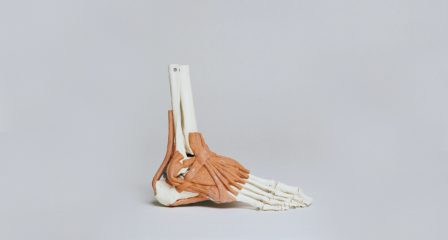What is the immune system and why is it important?
Our immune system is the body’s first line of defence responsible for protecting us from infections and illness. It is made up of white blood cells, antibodies, tissues and organs of the lymph system. If our immune system is not functioning optimally we are more vulnerable to illness. The more reduced the function the more frequent we may fall ill. Getting enough sleep, reducing stress, keeping active and having a nutritious diet can all help support the body’s immune system.
When it comes to diet there is no strong evidence than one single food or supplement can prevent colds and the flu. However there are many foods that are important to promote a healthy immune system. Discussed below are some key nutritional considerations.
Probiotics
Around 70-80% of immune cells are located in the gut. Therefore it is often the bodies first line of defence against bacteria entering the body. Probiotics are defined as live microorganisms which when consumed in adequate amounts as part of a food induce a health benefit to the host (human). They act to enhance and protect immune cells found in the walls of the gut by creating a diverse and healthy gut microbiome (the collection of bacteria, fungi and viruses).
Examples: Yoghurt, kefir, kimchi, sauerkraut, miso, kombucha, tempeh
Iron
Iron not only has important roles in oxygen delivery through the production of haemoglobin, but also is essential for normal development of the immune system. It is necessary for immune cell proliferation and maturation. When deficient in iron it has been found that the body’s capacity to have an adequate immune response is impacted.
Examples: Red meat, eggs, dried apricots and figs, iron fortified cereals (weet-bix, all bran), oats, almonds, cashews, tofu, oysters, beans, lentils
Zinc
Zinc is essential for the normal development and functioning of the immune system. Multiple aspects of the immune system are impacted by zinc deficiency including neutrophils natural killer cells, macrophages, T and B cells (different types of white blood cells). Therefore adequate zinc status is essential for good immune health.
Examples: Beef, pumpkin seeds (pepitas), rolled oats, cheddar cheese, sardines, milk, oysters, crab
Vitamin C
Vitamin C is important for maintaining a strong immune system. It contributes to immune defence by supporting various cell functions. Vitamin C is a water-soluble vitamin which means it can’t be stored by the body. If you are consuming 2 serves of fruit and 5 serves of vegetables daily you will be getting an adequate amount of Vitamin C each day.
Vitamin C supplementation daily over a long period of does not prevent you from contracting the common cold. It has been found that it can however shorten the duration of time people are ill by around 10% (for example a cold may last 9 days instead of 10). Symptoms were also reported to be milder. However research has shown Vitamin C supplementation did not have this effect on those who started taking it once they became ill. Research has also looked at trying to prevent colds in those exposed to short periods of very strenuous physical activity in cold (temperature) regions. Those who took Vitamin C 2-3 weeks before activity reduced risk of developing a cold by half compared to those who did not.
In summary, routine ingestion of Vitamin C supplements is not recommended and instead adequate dietary intake is instead encouraged. However you may consider supplementation for the 2-3 weeks before a major event to reduce risk of developing a cold.
Examples: oranges, kiwi fruit, strawberries, broccoli, cauliflower, Brussel sprouts, capsicum
Vitamin D
Vitamin D has a role in the immune response and is particularly important for T-cell activity. Deficiency has been associated with increased autoimmunity and increased susceptibility to infection. The Vitamin D receptor is found on almost all cells of the immune system.
As sunlight is the primary source of Vitamin D, during the winter months you may be at risk of Vitamin D deficiency, particularly in Victoria where the latitude limits UVB exposure and therefore Vitamin D synthesis. It may be worth chatting to your GP to check your Vitamin D levels to see if you need to top up over the winter months.
Examples: Oily fish (salmon, mackerel, sardines), egg yolk, mushrooms (that have been in the sun), fortified products such as margarine, milk and cereal.
7-30 minutes of daily sun exposure (depends on skin colour, latitude and season). In the winter months in Victoria it is recommended to achieve between 26-47 minutes per day.
Carbohydrates
There is consistent evidence to show that consuming carbohydrates during and post strenuous exercise helps to support the immune system. Carbohydrates (glucose) are the primary source of energy in the body and is found in immune cells and is used by lymphocytes, neutrophils and macrophages (white blood cells). High levels of stress hormones (cortisol and catecholamines) are released during high intensity exercise and a low level of blood glucose during prolonged exercise results in higher levels of cortisol and epinephrine. High levels of stress hormones both acute and chronic have immunosuppressive effects. As a result exercising in a carbohydrate depleted state results in higher levels of circulating stress hormones and therefore impairs immune function.
Therefore it is important that you consider your carbohydrate intake during and around exercise, particularly during heavy training phases.
Examples: fruit, wholegrain bread, cereals, brown rice, pasta, noodles, potatoes, sweet potato.
Other considerations
Research has shown a lack of sleep can reduce immunity, as during sleep your immune system releases protective proteins which can fight infection and inflammation. When sleep deprived there is a reduced production of these proteins resulting in greater susceptibility to illness. The recommendation is 7-9 hours per night (some individuals may need more).
Frequent hand washing is important to protect against bacteria and viruses that can be present on the surfaces we touch. Always wash your hands before eating.
Written by Dietitian, Alice Rose
References
Aranow, C. (2011). Vitamin D and the Immune System. Journal of Investigative Medicine, 59(6), 881-886. https://doi.org/10.2310/JIM.0b013e31821b8755
Cherayil, B. J. (2010). Iron and immunity: immunological consequences of iron deficiency and overload. Archivum Immunologiae et Therapiae Experimentalis 58(6), 407-415. https://doi.org/10.1007/s00005-010-0095-9
Gunzer, W., Kondra, M., & Pail, E. (2012). Exercise-Induced Immunodepression in Endurance Athletes and Nutritional Intervention with Carbohydrate, Protein and Fat — What Is Possible, What Is Not? Nutrients 4(9), 1187-1212. https://doi.org/10.3390/nu4091187
Informed Health. (2020). Common colds: Does vitamin C keep you healthy? InformedHealth.org. https://www.ncbi.nlm.nih.gov/books/NBK279544/
Mazziotta, C., Tognon, M., Martini, F., Torreggiani, E., & Rotondo, J. C. (2023). Probiotics Mechanism of Action on Immune Cells and Beneficial Effects on Human Health. Cells, 12(1), 184. https://doi.org/10.3390/cells12010184
Nutrition Australia. (2020). Supporting Your Immune System. https://nutritionaustralia.org/app/uploads/2021/02/Supporting-Your-Immune-System.pdf
Prasad, A. S. (2008). Zinc in Human Health: Effect of Zinc on Immune Cells. Molecular Medicine, 14(5-6), 353-357. https://doi.org/10.2119/2008-00033.Prasad
Shao, T., Verma, H. K., Pande, B., Costanzo, V., Ye, W., Cai, Y., & Bhaskar, L. V. (2021). Physical Activity and Nutritional Influence on Immune Function: An important strategy to improve immunity and health status. Frontiers in Physiology, 12 , Article 751374. https://doi.org/10.3389/fphys.2021.751374
Yan, F., & Polk, D. B. (2011). Probiotics and Immune Health. Current Opinion in Gastroenterology, 27(6), 496-501. https://doi.org/10.1097/MOG.0b013e32834baa4d



